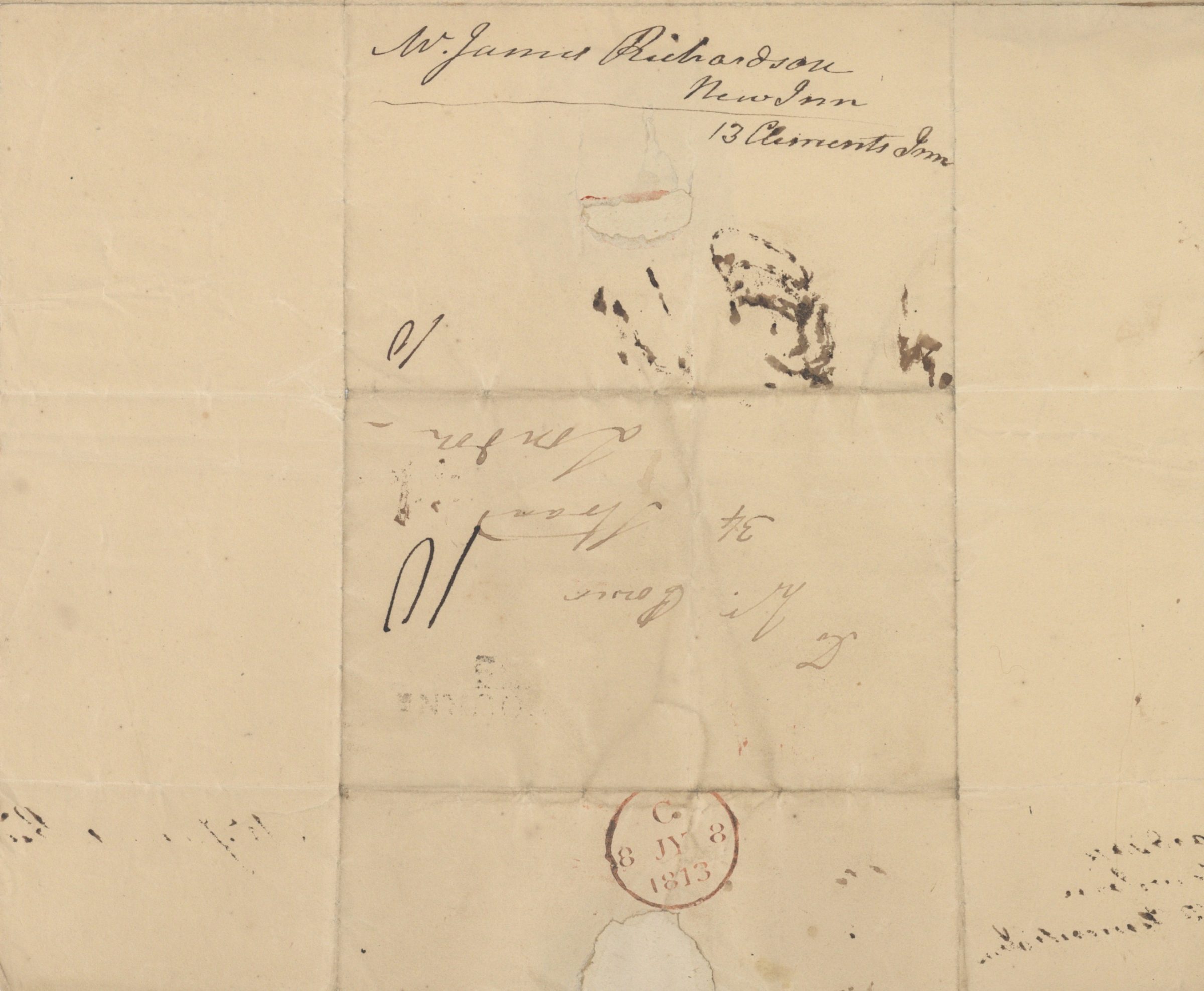Irish poet Thomas Moore Writes to His Publisher in 1813 Mentioning a Poem Newly Finished and a Possible Dramatic Piece




"I think your idea about my having a dramatic piece in view, while I am employed about my poem (founded upon the story of the poem, retaining the songs connected with it, and prepared so as to appear soon after it) is a very excellent thought, and I shall certainly act upon it…"
- Currency:
- USD
- GBP
- JPY
- EUR
- CNY
Thomas Moore was an Irish writer, poet, and lyricist celebrated for his Irish Melodies, which included The Last Rose of Summer and Believe Me if All Those Endearing Young Charms. He is considered Ireland’s national bard in the same way Burns is Scotland’s.
Autograph Letter Signed, 2 pages, Mayfield Cottage, July 8,...
Thomas Moore was an Irish writer, poet, and lyricist celebrated for his Irish Melodies, which included The Last Rose of Summer and Believe Me if All Those Endearing Young Charms. He is considered Ireland’s national bard in the same way Burns is Scotland’s.
Autograph Letter Signed, 2 pages, Mayfield Cottage, July 8, 1813 to his publisher James Power. “I feel a good deal of anxiety about the parcel which you mention having sent to Oakhanger and must write to Mr. Ready about it. Pray mention, when you write again, what was in it. We shall not for a few days longer be able to sleep in our cottage so that I am still kept from business except what my sauntering meditations about the fields produce. I think your idea about my having a dramatic piece in view, while I am employed about my poem (founded upon the story of the poem, retaining the songs connected with it, and prepared so as to appear soon after it) is a very excellent thought, and I shall certainly act upon it, but I am stupid enough to be quite at a loss to understand that part of your letter where you talk about the opportunity of doubling my income and by liking you know when I had made up my mind on the subject – pray tell me what you said and forgive my thickheadedness. I have written to [Samuel] Whitbread to say that I shall be most happy to do something for Drury Lane after my poem is finished. I have hopes I shall get on with my furnishing &c without troubling you, the only thing I shall now ask of you is to send me the bidet I had in Bury Street, packed up very carefully and directed for me to the cottage to be left at Black’s Head, Ashbourne – at the same time I should be glad you could send the last Quarterly Review and pray, go to Drakard’s, get the amount of my paper, and give them my direction. If you should be passing Bury St. I think two of my Drakards must be lying there, and you can send them to me. The preface to the music is the first thing I shall have to send to you…I am glad you have settled so much to your mind with Bennison.” With the integral address leaf. The Moores were moving to Ashbourne, Derbyshire where they rented Mayfield cottage from a Mrs. Ready who was a friend of composer John Andrew Stevenson who put many of Moore’s poems to music. A few days after this letter Moore sent Power a copy of his “I Saw The Moon Rise Clear. A Finland Love Song” which is probably what he mentions. [John} “Drakard’s Paper: A London Weekly Journal” had perhaps published or was interested in some of Moore’s poems.

Frame, Display, Preserve
Each frame is custom constructed, using only proper museum archival materials. This includes:The finest frames, tailored to match the document you have chosen. These can period style, antiqued, gilded, wood, etc. Fabric mats, including silk and satin, as well as museum mat board with hand painted bevels. Attachment of the document to the matting to ensure its protection. This "hinging" is done according to archival standards. Protective "glass," or Tru Vue Optium Acrylic glazing, which is shatter resistant, 99% UV protective, and anti-reflective. You benefit from our decades of experience in designing and creating beautiful, compelling, and protective framed historical documents.
Learn more about our Framing Services












































































































